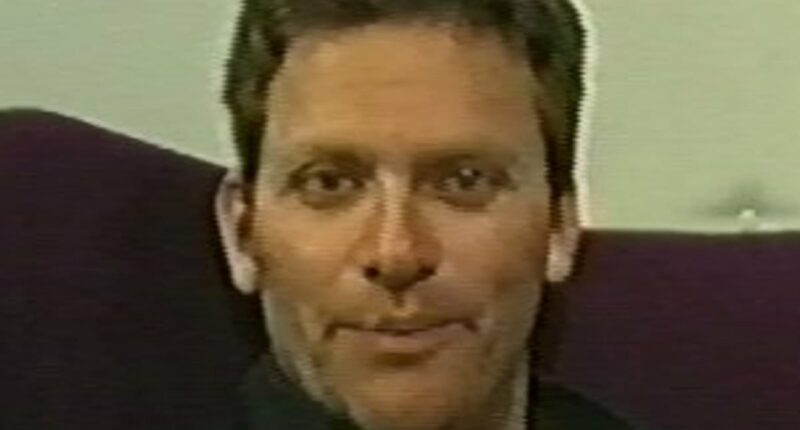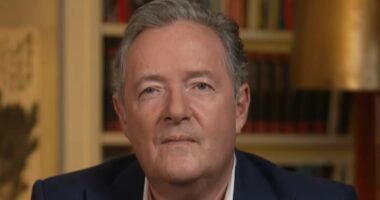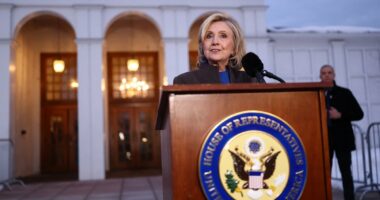Share this @internewscast.com
Television quickly became the most exciting, influential and daring art form of the 21st century.
Programmes and series have had the power to change narratives, ideas and start political movements.
And now, celebrities behind the episodes have shared the untold stories behind the most iconic TV moments between 2000 and 2025.
For their latest edition, British GQ spoke to the likes of Davina McCall, Simon Cowell and Phoebe Waller Bridge.
When asked about the early days of reality TV and Big Brother’s launch in 2000, Ms. McCall, 57, recalled a memorable incident where contestant Nasty Nick stirred trouble by pitting housemates against each other.
‘Nobody had a clue what they were doing,’ recounted Davina McCall, the iconic host of Big Brother and arguably its most devoted viewer, about the Channel 4 team at the helm.

Big Brother’s Nasty Nick scandal has joined British GQ’s list of 25 moments that shaped TV from 2000 to 2025
‘Working with everyday people was a first for everyone. It genuinely was a social experiment: What happens if they have alcohol? If they’re isolated from the outside world, what unfolds? We were completely in the dark.’
‘The press got so out of control, we started worrying about [Nick’s] safety.
‘In the end, he was evicted, and we had to discreetly whisk him away to a hotel for his safety. I distinctly remember needing to buy a pair of pants from Tesco just for a disguise, to avoid being followed when I went to interview him. It was chaos.’
Another TV show to make the list was The X-Factor, for disrupting the pop industry from 2004.
‘People had a real appetite to buy these kinds of [reality] shows,’ Cowell told GQ.
‘When we pitched the concept, they accepted it almost immediately. Originally, we wanted to name it Star Wars, but soon realized there might be some legal hurdles with that choice.’
The Office, The Osbournes and Lost also made the list.
As did CSI, The OC, The Sopranos and Mad Men.

The infamous conclusion of the US crime drama The Sopranos also made the list, sparking confusion among millions due to its sudden ending and leaving many convinced there was a problem with their TVs.

Another TV show to make the list was The X-Factor, for disrupting the pop industry when it first hit screens in 2004 (Simon Cowell is pictured with winner Steve Brookstein)
Phoebe Waller-Bridge, 40, who created, wrote and starred in the comedy series Fleabag in 2016 won numerous accolades for her work.
She told GQ: ‘I wanted to write about a f*****-up woman whose bad behaviour couldn’t be explained by one big traumatic assault in her past, but just by the multitudes of paper cuts that come from living in the modern world.
‘But mainly I wanted to write a woman who was so funny about her pain that we didn’t see it coming. A tragedy hidden in what seemed at first to be a light sex comedy.’
Series such as House of Cards, Black Mirror and Game of Thrones were also named by GQ.
Nicole Kidman, 58, was asked about Big Little Lies which was her gateway from film to TV in 2017.
‘The limited series became incredibly valuable and important and viable,’ she said.
‘I hadn’t ever seen women talking like this before.’

When asked why she now does more TV work than film, she said: ‘I just have more opportunities in doing something very entertaining on television. I can do something that’s got mass appeal.’
Elsewhere on the list was Love Island for its iconic 2019 year, I May Destroy You for defining the #MeToo moment and lockdown’s Normal People.
RuPaul’s Drag Race was highlighted for bring drag into the mainstream in 2021 as well as Adolescence which was about a 13-year-old boy driven by the manosphere to murder a female classmate.
Sarah Owen, a Labour MP said the show spread like lightning in Westminster.
‘For politicians that weren’t engaged with this already, all of a sudden they were getting emails from concerned parents, from teachers or from young people themselves,’ she said.

















